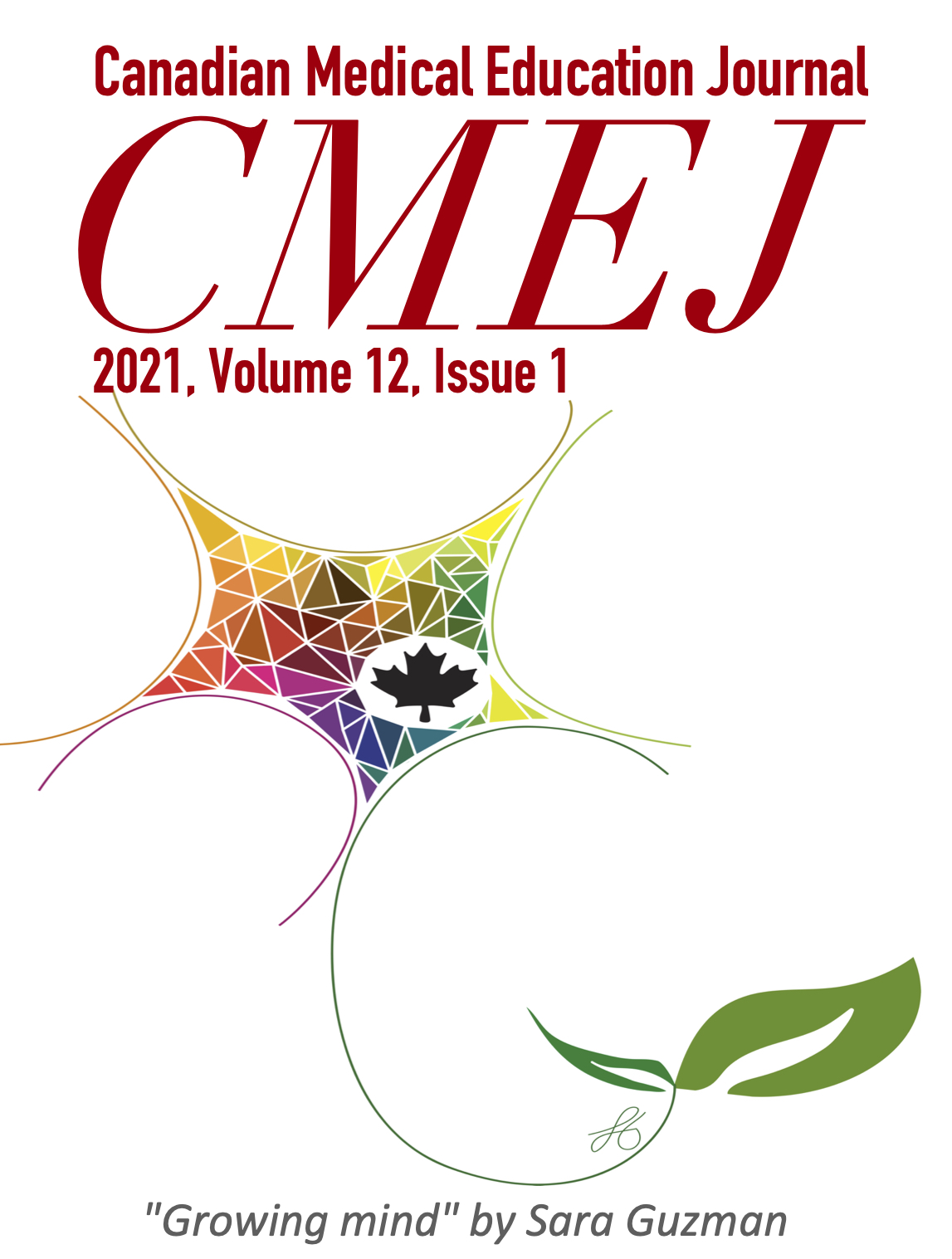Investigating the importance of clinical topics for developing a curriculum on gastroenterology for pediatric residents
DOI:
https://doi.org/10.36834/cmej.43242Abstract
Background: Focused objectives provide effective learning. Pediatric residents in Canada follow objectives set by the Royal College of Physicians and Surgeons of Canada (RCPSC) with the goal of becoming competent general pediatricians. During the gastroenterology rotation, it remains unclear as to what clinical problems listed in the aforementioned objectives are crucial to understand as part of general pediatric practice. The purpose of this study was to identify the gastroenterological conditions of most importance to incorporate into a focused curriculum for pediatric residents.
Methods: All pediatricians across four Canadian Atlantic provinces were surveyed by a mailed questionnaire. Questions included demographics and ranking of the 14 clinical problems currently listed in the RCPSC objectives along with six more generated after input was gained from pediatric gastroenterologists.
Results: Of the 234 pediatricians surveyed, 132 (56%) responded, 48% of whom were general pediatricians. Celiac disease, gastroesophageal reflux, and obesity (currently not on the RCPSC list) were identified as important/very important conditions to understand by 94.4%, 96.1%, and 96.0% of respondents, respectively. There were no significant differences in rankings between general pediatricians and subspecialists. A large majority recommended that a rotation in gastroenterology be mandatory during pediatric residency.
Conclusions: Pediatricians from four Canadian Atlantic provinces recommended a list of gastrointestinal conditions to be included in pediatric residency training. It would be important to consider these recommendations to keep the training curriculum in sync with real world needs.
Downloads
Published
Issue
Section
License
Submission of an original manuscript to the Canadian Medical Education Journal will be taken to mean that it represents original work not previously published, that it is not being considered elsewhere for publication. If accepted for publication, it will be published online and it will not be published elsewhere in the same form, for commercial purposes, in any language, without the consent of the publisher.
Authors who publish in the Canadian Medical Education Journal agree to release their articles under the Creative Commons Attribution-Noncommercial-No Derivative Works 4.0 Canada Licence. This licence allows anyone to copy and distribute the article for non-commercial purposes provided that appropriate attribution is given. For details of the rights an author grants users of their work, please see the licence summary and the full licence.











